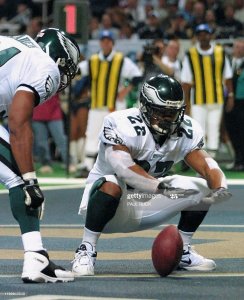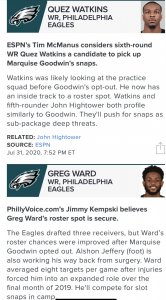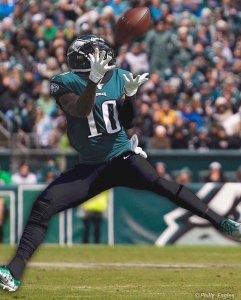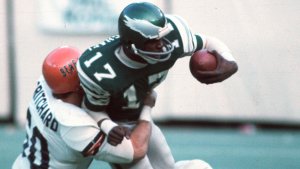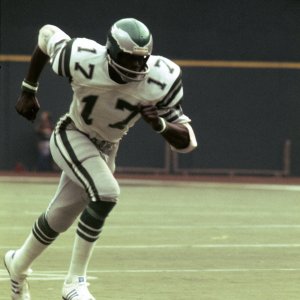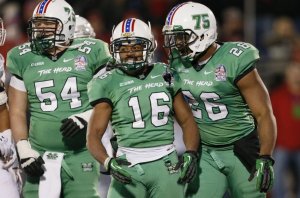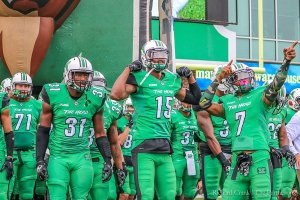- Aug 4, 2005
- 35,029
- 16,945
Yes, there is reason to be concerned about South Carolina’s recent coaching exodus
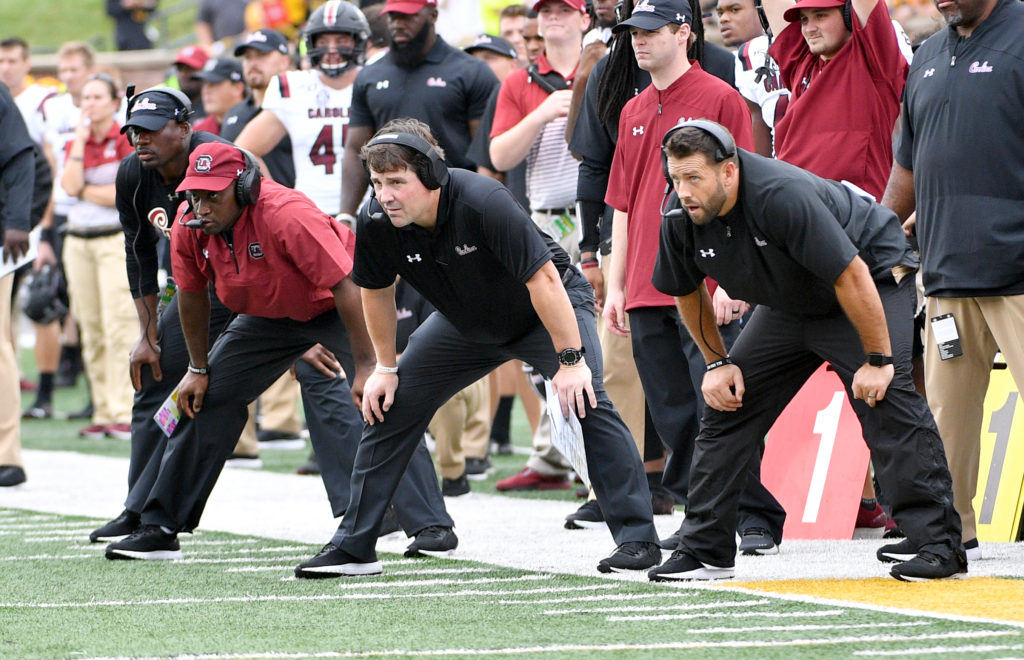
By Josh Kendall Feb 13, 2020
 27
27

COLUMBIA, S.C. — College football has never been a level playing field.
It’s easier to win at Alabama than it is at Vanderbilt for plenty of reasons — some of which have to do with academics, some of which have to do with history, but more of which have to do with a willingness to expend tremendous money and resources into athletics.
That’s always been the case and always will be the case. College football fans at every location have made their respective peace with it. South Carolina fans certainly understand they don’t have the advantages of some of their neighbors. The Gamecocks don’t have the tradition of some of their SEC rivals (or even Clemson’s more recent winning tradition), which makes it harder to recruit elite talent. Until recently the school did not put the financial resources into the program necessary to compete with the bells and whistles of the big boys. (That is no longer the case, due to the 650 Lincoln living quarters, the $50 million operations building and the Dodie Anderson Academic Enrichment Center, but those investments haven’t had time to pay dividends to the program’s stature.) South Carolina also does not benefit from a loaded geographic in-state recruiting base close like Georgia and Florida. Most of the team’s fans understand this, and, in most years, they can live with it.
It’s harder in times like these, though.
Gamecocks head coach Will Muschamp is entering his fifth season with a 26-25 career record at the school and an unspoken understanding that the 2020 season is make or break. When the head coach is facing an uncertain future, the climb gets harder. The everyday disadvantages of the program mean South Carolina is always operating on a gradual incline, a slight slope that means the Gamecocks have to work a just a little harder to take the same steps than some of its neighbors. Because of the current climate, that slight slope has turned into a steep hill.
So just when progress is of the utmost importance for Muschamp and his team, that progress is harder to make. The coaching exodus of the last seven days is a prime example of this point.
South Carolina lost running backs coach Thomas Brown, who had been with the team for one season, to the same position with the NFL’s Los Angeles Rams. It lost defensive line coach John Scott Jr., also a one-and-done on the coaching staff, to the same position at Penn State. And it lost director of player personnel Matt Lindsey, who spent three seasons at the school, to a similar position at Ole Miss.
It also might lose wide receivers coach Bryan McClendon, who was demoted from offensive coordinator after the season, to the Pittsburgh Steelers. McClendon has interviewed with the Steelers and is expected to take the job if offered, a source told The Athletic.
This is what happens when head coaches enter seasons with questions about their job status: Their assistants start looking for more stable opportunities. Brown, Scott Jr., and Lindsey have found them, and McClendon might be on his way to one.
So in the last week, the Gamecocks have lost one of their best recruiters in Brown, the man most responsible for luring four-star tailback MarShawn Lloyd from DeMatha High School in Hyattsville, Md.; a defensive line coach regularly praised by Muschamp and who helped secure five-star defensive end Jordan Burch and four-star defensive lineman Alex Huntley out of nearby Hammond School; and Lindsey, a rising star on the personnel side of the business. Muschamp regularly praised Lindsey’s ability to analyze film and put the right kind of highlight clips of the right kind of players in front of him for evaluation.
The departure of the coaches is problem No. 1. Remember, the Gamecocks have already fired quarterbacks coach Dan Werner and head strength coach Jeff Dillman and watched special teams coordinator/linebackers coach Coleman Hutlzer depart for Texas after the season.
That means at least six of Muschamp’s 12 most important positions (four on-field coaches, the personnel director and head strength coach) are gone. The number will grow to seven if McClendon leaves.
It’s not a disaster to rebuild a coaching staff from a team that went 4-8 a year ago, but this is not the best way to go about it. It’s one thing for a head coach to make sweeping changes to his staff with a new plan in mind. It’s another thing to have to plug holes in a piecemeal fashion because a significant amount of people want to get out of town.
This brings us to problem No. 2.
Muschamp is now hiring into the same environment several of these coaches departed (or are trying to). It’s going to take a heck of a sales job on his part to get a coach with other good options to roll the dice on a job that might only last another 10 months because of how hot Muschamp’s seat will be in 2020.
None of this means the people that Muschamp has hired or will hire won’t be good coaches. It’s just the fact of the matter that the slate of new and potential hires weren’t exactly in hot demand anywhere else (and it will be difficult to get ones who are). For example, new Gamecocks strength coach Paul Jackson was out of work after Ole Miss fired Matt Luke. New offensive coordinator Mike Bobo and tight ends coach Joe Cox had been let go at Colorado State.
Tracy Rocker, who, a source has told The Athletic, has been tabbed to replace Scott Jr. as the defensive line coach, may not have been welcomed back at Tennessee. A separate source told The Athletic that Rocker’s departure from the Vols has been known “a couple weeks.”
Former NC State co-offensive coordinator Des Kitchings and Tommie Robinson, an assistant head coach, recruiting coordinator and running backs coach at LSU, have interviewed for the vacant running backs coach position, according to TheBigSpur.com. Kitchings was let go at NC State after the season and doesn’t currently have a job, and LSU already has a replacement ready to go if Robinson leaves, Tigers head coach Ed Orgeron said on Baton Rouge, La., radio this week. If the head coach is commenting publicly on a potential departure, it doesn’t exactly create the sense that that coach is in high demand in his current position. (Of note: Philadelphia Eagles assistant head coach and running backs coach Duce Staley, a former South Carolina tailback, inquired with Muschamp about the running backs coach position but was rebuffed, a source told The Athletic.)
There’s no way of knowing any of those coaches will be bad; in fact, they may be great, a perfect fit. It is simply the reality that South Carolina finds itself in.
The makeup of the coaching staff could change, too. If McClendon leaves, expect the Gamecocks to hire a linebackers coach instead of another wide receivers coach. South Carolina currently has an unbalanced staff with six offensive positions and four defensive ones. Muschamp had planned to coach the linebackers himself in 2020, but he now plans to hire for that position if McClendon leaves, a source told The Athletic. Assistant quarterbacks coach Bobby Bentley and Cox could coach multiple offensive positions, which gives Muschamp flexibility.
The same uphill climb that Muschamp faces with his coaching hires will come into play in recruiting in 2021 class. It will affect next year’s projections for the team as well. It will affect just about everything.
The Gamecocks are in a hole at the moment. They will have to climb out.

By Josh Kendall Feb 13, 2020
COLUMBIA, S.C. — College football has never been a level playing field.
It’s easier to win at Alabama than it is at Vanderbilt for plenty of reasons — some of which have to do with academics, some of which have to do with history, but more of which have to do with a willingness to expend tremendous money and resources into athletics.
That’s always been the case and always will be the case. College football fans at every location have made their respective peace with it. South Carolina fans certainly understand they don’t have the advantages of some of their neighbors. The Gamecocks don’t have the tradition of some of their SEC rivals (or even Clemson’s more recent winning tradition), which makes it harder to recruit elite talent. Until recently the school did not put the financial resources into the program necessary to compete with the bells and whistles of the big boys. (That is no longer the case, due to the 650 Lincoln living quarters, the $50 million operations building and the Dodie Anderson Academic Enrichment Center, but those investments haven’t had time to pay dividends to the program’s stature.) South Carolina also does not benefit from a loaded geographic in-state recruiting base close like Georgia and Florida. Most of the team’s fans understand this, and, in most years, they can live with it.
It’s harder in times like these, though.
Gamecocks head coach Will Muschamp is entering his fifth season with a 26-25 career record at the school and an unspoken understanding that the 2020 season is make or break. When the head coach is facing an uncertain future, the climb gets harder. The everyday disadvantages of the program mean South Carolina is always operating on a gradual incline, a slight slope that means the Gamecocks have to work a just a little harder to take the same steps than some of its neighbors. Because of the current climate, that slight slope has turned into a steep hill.
So just when progress is of the utmost importance for Muschamp and his team, that progress is harder to make. The coaching exodus of the last seven days is a prime example of this point.
South Carolina lost running backs coach Thomas Brown, who had been with the team for one season, to the same position with the NFL’s Los Angeles Rams. It lost defensive line coach John Scott Jr., also a one-and-done on the coaching staff, to the same position at Penn State. And it lost director of player personnel Matt Lindsey, who spent three seasons at the school, to a similar position at Ole Miss.
It also might lose wide receivers coach Bryan McClendon, who was demoted from offensive coordinator after the season, to the Pittsburgh Steelers. McClendon has interviewed with the Steelers and is expected to take the job if offered, a source told The Athletic.
This is what happens when head coaches enter seasons with questions about their job status: Their assistants start looking for more stable opportunities. Brown, Scott Jr., and Lindsey have found them, and McClendon might be on his way to one.
So in the last week, the Gamecocks have lost one of their best recruiters in Brown, the man most responsible for luring four-star tailback MarShawn Lloyd from DeMatha High School in Hyattsville, Md.; a defensive line coach regularly praised by Muschamp and who helped secure five-star defensive end Jordan Burch and four-star defensive lineman Alex Huntley out of nearby Hammond School; and Lindsey, a rising star on the personnel side of the business. Muschamp regularly praised Lindsey’s ability to analyze film and put the right kind of highlight clips of the right kind of players in front of him for evaluation.
The departure of the coaches is problem No. 1. Remember, the Gamecocks have already fired quarterbacks coach Dan Werner and head strength coach Jeff Dillman and watched special teams coordinator/linebackers coach Coleman Hutlzer depart for Texas after the season.
That means at least six of Muschamp’s 12 most important positions (four on-field coaches, the personnel director and head strength coach) are gone. The number will grow to seven if McClendon leaves.
It’s not a disaster to rebuild a coaching staff from a team that went 4-8 a year ago, but this is not the best way to go about it. It’s one thing for a head coach to make sweeping changes to his staff with a new plan in mind. It’s another thing to have to plug holes in a piecemeal fashion because a significant amount of people want to get out of town.
This brings us to problem No. 2.
Muschamp is now hiring into the same environment several of these coaches departed (or are trying to). It’s going to take a heck of a sales job on his part to get a coach with other good options to roll the dice on a job that might only last another 10 months because of how hot Muschamp’s seat will be in 2020.
None of this means the people that Muschamp has hired or will hire won’t be good coaches. It’s just the fact of the matter that the slate of new and potential hires weren’t exactly in hot demand anywhere else (and it will be difficult to get ones who are). For example, new Gamecocks strength coach Paul Jackson was out of work after Ole Miss fired Matt Luke. New offensive coordinator Mike Bobo and tight ends coach Joe Cox had been let go at Colorado State.
Tracy Rocker, who, a source has told The Athletic, has been tabbed to replace Scott Jr. as the defensive line coach, may not have been welcomed back at Tennessee. A separate source told The Athletic that Rocker’s departure from the Vols has been known “a couple weeks.”
Former NC State co-offensive coordinator Des Kitchings and Tommie Robinson, an assistant head coach, recruiting coordinator and running backs coach at LSU, have interviewed for the vacant running backs coach position, according to TheBigSpur.com. Kitchings was let go at NC State after the season and doesn’t currently have a job, and LSU already has a replacement ready to go if Robinson leaves, Tigers head coach Ed Orgeron said on Baton Rouge, La., radio this week. If the head coach is commenting publicly on a potential departure, it doesn’t exactly create the sense that that coach is in high demand in his current position. (Of note: Philadelphia Eagles assistant head coach and running backs coach Duce Staley, a former South Carolina tailback, inquired with Muschamp about the running backs coach position but was rebuffed, a source told The Athletic.)
There’s no way of knowing any of those coaches will be bad; in fact, they may be great, a perfect fit. It is simply the reality that South Carolina finds itself in.
The makeup of the coaching staff could change, too. If McClendon leaves, expect the Gamecocks to hire a linebackers coach instead of another wide receivers coach. South Carolina currently has an unbalanced staff with six offensive positions and four defensive ones. Muschamp had planned to coach the linebackers himself in 2020, but he now plans to hire for that position if McClendon leaves, a source told The Athletic. Assistant quarterbacks coach Bobby Bentley and Cox could coach multiple offensive positions, which gives Muschamp flexibility.
The same uphill climb that Muschamp faces with his coaching hires will come into play in recruiting in 2021 class. It will affect next year’s projections for the team as well. It will affect just about everything.
The Gamecocks are in a hole at the moment. They will have to climb out.






